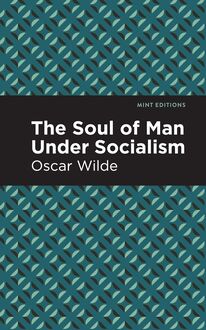-
 Univers
Univers
-
 Ebooks
Ebooks
-
 Livres audio
Livres audio
-
 Presse
Presse
-
 Podcasts
Podcasts
-
 BD
BD
-
 Documents
Documents
-
- Cours
- Révisions
- Ressources pédagogiques
- Sciences de l’éducation
- Manuels scolaires
- Langues
- Travaux de classe
- Annales de BEP
- Etudes supérieures
- Maternelle et primaire
- Fiches de lecture
- Orientation scolaire
- Méthodologie
- Corrigés de devoir
- Annales d’examens et concours
- Annales du bac
- Annales du brevet
- Rapports de stage
La lecture à portée de main
Vous pourrez modifier la taille du texte de cet ouvrage
Découvre YouScribe en t'inscrivant gratuitement
Je m'inscrisDécouvre YouScribe en t'inscrivant gratuitement
Je m'inscrisEn savoir plus
Vous pourrez modifier la taille du texte de cet ouvrage
En savoir plus

Description
When her father has a crisis of conscious, Margaret Hale’s life is turned upside down. Because her parents decide to move away from southern London, Margaret must leave behind the tranquil, rural life she’s always known to settle in an industrial town called Milton. Though she does her best to assimilate, Margaret cannot help but feel trapped and hopeless in Milton, as she witnesses the brutal effects industrialization has on the environment and the individual. Used to fresh air and open spaces, Margaret notices the stark difference between her country home and Milton. While the air feels thick and the streets feel too crowded, Margaret’s compassion is captured by the plight of the lower classes. Befriending many poor laborers, Margaret learns of the unsafe conditions they work in, while they are making pennies on the boss’s dollar. While Margaret witnesses and supports her friends as they navigate toxic employer and worker relationships, she becomes involved in their struggles and gradually begins to brainstorm solutions. But when she meets John Thornton, a newly rich cotton mill owner, Margaret’s loyalty is tested. Initially clashing with John because of his occupation and his opinions on workers, Margaret begins to slowly develop strong feelings for John, avoiding him when she can out of respect for her underprivileged working friends. But as tensions grow in Milton, Margaret realizes that she cannot hide from John forever, and that she must navigate her intense feelings for the man; is it contempt, or something more?
With themes of class, social norms, and clashes between rural and urban environments, North and South is a sophisticated romance novel. Through the use of strong central characters and the set to the backdrop of the industrial revolution, Elizabeth Cleghorn Gaskell defies the tradition of romance, and portrayed topics left unexplored by other women of her time. First published in 1854, North and South features an entertaining narrative while providing valuable insight on the life and society of the 19th century Industrial Revolution in England.
This edition of Elizabeth Cleghorn Gaskell’s North and South is printed in a modern font and features a new, eye-catching cover design, making it both contemporary and accessible.
Sujets
Informations
| Publié par | Mint Editions |
| Date de parution | 09 février 2021 |
| Nombre de lectures | 2 |
| EAN13 | 9781513276335 |
| Langue | English |
| Poids de l'ouvrage | 2 Mo |
Informations légales : prix de location à la page 0,0500€. Cette information est donnée uniquement à titre indicatif conformément à la législation en vigueur.
Extrait
North and South
Elizabeth Cleghorn Gaskell
North and South was first published in 1854.
This edition published by Mint Editions 2020.
ISBN 9781513271330 | E-ISBN 9781513276335
Published by Mint Editions®
minteditionbooks.com
Publishing Director: Jennifer Newens
Design & Production: Rachel Lopez Metzger
Project Manager: Micaela Clark
Typesetting: Westchester Publishing Services
C ONTENTS I. “H ASTE TO THE W EDDING ” II. R OSES AND T HORNS III. “T HE M ORE H ASTE THE W ORSE S PEED ” IV. D OUBTS AND D IFFICULTIES V. D ECISION VI. F AREWELL VII. N EW S CENES AND F ACES VIII. H OME S ICKNESS IX. D RESSING FOR T EA X. W ROUGHT I RON AND G OLD XI. F IRST I MPRESSIONS XII. M ORNING C ALLS XIII. S OFT B REEZE IN A S ULTRY P LACE XIV. T HE M EETING XV. M ASTERS AND M EN XVI. T HE S HADOW OF D EATH XVII. W HAT IS A S TRIKE ? XVIII. L IKES AND D ISLIKES XIX. A NGEL V ISITS XX. M EN AND G ENTLEMEN XXI. T HE D ARK N IGHT XXII. A B LOW AND ITS C ONSEQUENCES XXIII. M ISTAKES XXIV. M ISTAKES C LEARED U P XXV. F REDERICK XXVI. M OTHER AND S ON XXVII. F RUIT -P IECE XXVIII. C OMFORT IN S ORROW XXIX. A R AY OF S UNSHINE XXX. H OME AT L AST XXXI. “S HOULD A ULD A CQUAINTANCE BE F ORGOT ” XXXII. M ISCHANCES XXXIII. P EACE XXXIV. F ALSE AND T RUE XXXV. E XPIATION XXXVI. U NION N OT A LWAYS S TRENGTH XXXVII. L OOKING S OUTH XXXVIII. P ROMISES F ULFILLED XXXIX. M AKING F RIENDS XL. O UT OF T UNE XLI. T HE J OURNEY ’ S E ND XLII. A LONE ! A LONE ! XLIII. M ARGARET ’ S F LITTIN ’ XLIV. E ASE N OT P EACE XLV. N OT A LL A D REAM XLVI. O NCE AND N OW XLVII. S OMETHING W ANTING XLVIII. “N E ’ ER TO BE F OUND A GAIN ” XLIX. B REATHING T RANQUILLITY L. C HANGES AT M ILTON LI. M EETING A GAIN LII. “P ACK C LOUDS A WAY ”
I
“H ASTE TO THE W EDDING ”
“Wooed and married and a’.”
“Edith!” said Margaret, gently, “Edith!”
But as Margaret half suspected, Edith had fallen asleep. She lay curled up on the sofa in the back drawing-room in Harley Street looking very lovely in her white muslin and blue ribbons. If Titania had ever been dressed in white muslin and blue ribbons, and had fallen asleep on a crimson damask sofa in a back drawing-room, Edith might have been taken for her. Margaret was struck afresh by her cousin’s beauty. They had grown up together from childhood, and all along Edith had been remarked upon by every one, except Margaret, for her prettiness; but Margaret had never thought about it until the last few days, when the prospect of soon losing her companion seemed to give force to every sweet quality and charm which Edith possessed. They had been talking about wedding dresses and wedding ceremonies; and Captain Lennox, and what he had told Edith about her future life at Corfu, where his regiment was stationed; and the difficulty of keeping a piano in good tune (a difficulty which Edith seemed to consider as one of the most formidable that could befall her in her married life), and what gowns she should want in the visits to Scotland, which would immediately succeed her marriage; but the whispered tone had latterly become more drowsy; and Margaret, after a pause of a few minutes, found, as she fancied, that in spite of the buzz in the next room, Edith had rolled herself up into a soft ball of muslin and ribbon, and silken curls, and gone off into a peaceful little after-dinner nap.
Margaret had been on the point of telling her cousin of some of the plans and visions which she entertained as to her future life in the country parsonage, where her father and mother lived; and where her bright holidays had always been passed, though for the last ten years her aunt Shaw’s house had been considered as her home. But in default of a listener, she had to brood over the change in her life silently as heretofore. It was a happy brooding, although tinged with regret at being separated for an indefinite time from her gentle aunt and dear cousin. As she thought of the delight of filling the important post of only daughter in Helstone parsonage, pieces of the conversation out of the next room came upon her ears. Her aunt Shaw was talking to the five or six ladies who had been dining there, and whose husbands were still in the dining-room. They were the familiar acquaintances of the house; neighbours whom Mrs. Shaw called friends, because she happened to dine with them more frequently than with any other people, and because if she or Edith wanted anything from them, or they from her, they did not scruple to make a call at each other’s houses before luncheon. These ladies and their husbands were invited in their capacity of friends, to eat a farewell dinner in honour of Edith’s approaching marriage. Edith had rather objected to this arrangement, for Captain Lennox was expected to arrive by a late train this very evening; but, although she was a spoiled child, she was too careless and idle to have a very strong will of her own, and gave way when she found that her mother had absolutely ordered those extra delicacies of the season which are always supposed to be efficacious against immoderate grief at farewell dinners. She contented herself by leaning back in her chair, merely playing with the food on her plate, and looking grave and absent; while all around her were enjoying the mots of Mr. Grey, the gentleman who always took the bottom of the table at Mrs. Shaw’s dinner parties, and asked Edith to give them some music in the drawing-room. Mr. Grey was particularly agreeable over this farewell dinner, and the gentlemen staid downstairs longer than usual. It was very well they did—to judge from the fragments of conversation which Margaret overheard.
“I suffered too much myself; not that I was not extremely happy with the poor dear General, but still disparity of age is a drawback; one that I was resolved Edith should not have to encounter. Of course, without any maternal partiality, I foresaw that the dear child was likely to marry early; indeed, I had often said that I was sure she would be married before she was nineteen. I had quite prophetic feeling when Captain Lennox”—and here the voice dropped into a whisper, but Margaret could easily supply the blank. The course of true love in Edith’s case had run remarkably smooth. Mrs. Shaw had given way to the presentiment, as she expressed it; and had rather urged on the marriage, although it was below the expectations which many of Edith’s acquaintances had formed for her, a young and pretty heiress. But Mrs. Shaw said that her only child should marry for love,—and sighed emphatically, as if love had not been her motive for marrying the General. Mrs. Shaw enjoyed the romance of the present engagement rather more than her daughter. Not but that Edith was very thoroughly and properly in love; still she would certainly have preferred a good house in Belgravia, to all the picturesqueness of the life which Captain Lennox described at Corfu. The very parts which made Margaret glow as she listened, Edith pretended to shiver and shudder at; partly for the pleasure she had in being coaxed out of her dislike by her fond lover, and partly because anything of a gipsy or make-shift life was really distasteful to her. Yet had any one come with a fine house, and a fine estate, and a fine title to boot, Edith would still have clung to Captain Lennox while the temptation lasted; when it was over, it is possible she might have had little qualms of ill-concealed regret that Captain Lennox could not have united in his person everything that was desirable. In this she was but her mother’s child; who, after deliberately marrying General Shaw with no warmer feeling than respect for his character and establishment, was constantly, though quietly, bemoaning her hard lot in being united to one whom she could not love.
“I have spared no expense in her trousseau,” were the next words Margaret heard. “She has all the beautiful Indian shawls and scarfs the General gave to me, but which I shall never wear again.”
“She is a lucky girl,” replied another voice, which Margaret knew to be that of Mrs. Gibson, a lady who was taking a double interest in the conversation, from the fact of one of her daughters having been married within the last few weeks. “Helen had set her heart upon an Indian shawl, but really when I found what an extravagant price was asked, I was obliged to refuse her. She will be quite envious when she hears of Edith having Indian shawls. What kind are they? Delhi? with the lovely little borders?”
Margaret heard her aunt’s voice again, but this time it was as if she had raised herself up from her half-recumbent position, and were looking into the more dimly lighted back drawing-room. “Edith! Edith!” cried she; and then she sank as if wearied by the exertion. Margaret stepped forward.
“Edith is asleep, Aunt Shaw. Is it anything I can do?”
All the ladies said “poor child!” on receiving this distressing intelligence about Edith; and the minute lap-dog in Mrs. Shaw’s arms began to bark, as if excited by the burst of pity.
“Hush, Tiny! you naughty little girl! you will waken your mistress. It was only to ask Edith if she would tell Newton to bring down her shawls; perhaps you would go, Margaret dear?”
Margaret went up into the old nursery at the very top of the house, where Newton was busy getting up some laces which were required for the wedding. While Newton went (not without a muttered grumbling) to undo the shawls, which had already been exhibited four or five times that day, Margaret looked round upon the nursery; the first room in that house with which she had become familiar nine years ago, when she was brought, all untamed from the forest, to share the home, the play, and the lessons of her cousin Edith. She remembered the dark, dim look of the London nursery, presided over by an austere and ceremonious nurse, who was terribly particular about clean hands and torn frocks. She recollected the first tea up there—separate from her father and aunt, who were dining somewhere d
-
 Univers
Univers
-
 Ebooks
Ebooks
-
 Livres audio
Livres audio
-
 Presse
Presse
-
 Podcasts
Podcasts
-
 BD
BD
-
 Documents
Documents
-
Jeunesse
-
Littérature
-
Ressources professionnelles
-
Santé et bien-être
-
Savoirs
-
Education
-
Loisirs et hobbies
-
Art, musique et cinéma
-
Actualité et débat de société
-
Jeunesse
-
Littérature
-
Ressources professionnelles
-
Santé et bien-être
-
Savoirs
-
Education
-
Loisirs et hobbies
-
Art, musique et cinéma
-
Actualité et débat de société
-
Actualités
-
Lifestyle
-
Presse jeunesse
-
Presse professionnelle
-
Pratique
-
Presse sportive
-
Presse internationale
-
Culture & Médias
-
Action et Aventures
-
Science-fiction et Fantasy
-
Société
-
Jeunesse
-
Littérature
-
Ressources professionnelles
-
Santé et bien-être
-
Savoirs
-
Education
-
Loisirs et hobbies
-
Art, musique et cinéma
-
Actualité et débat de société
- Cours
- Révisions
- Ressources pédagogiques
- Sciences de l’éducation
- Manuels scolaires
- Langues
- Travaux de classe
- Annales de BEP
- Etudes supérieures
- Maternelle et primaire
- Fiches de lecture
- Orientation scolaire
- Méthodologie
- Corrigés de devoir
- Annales d’examens et concours
- Annales du bac
- Annales du brevet
- Rapports de stage




















